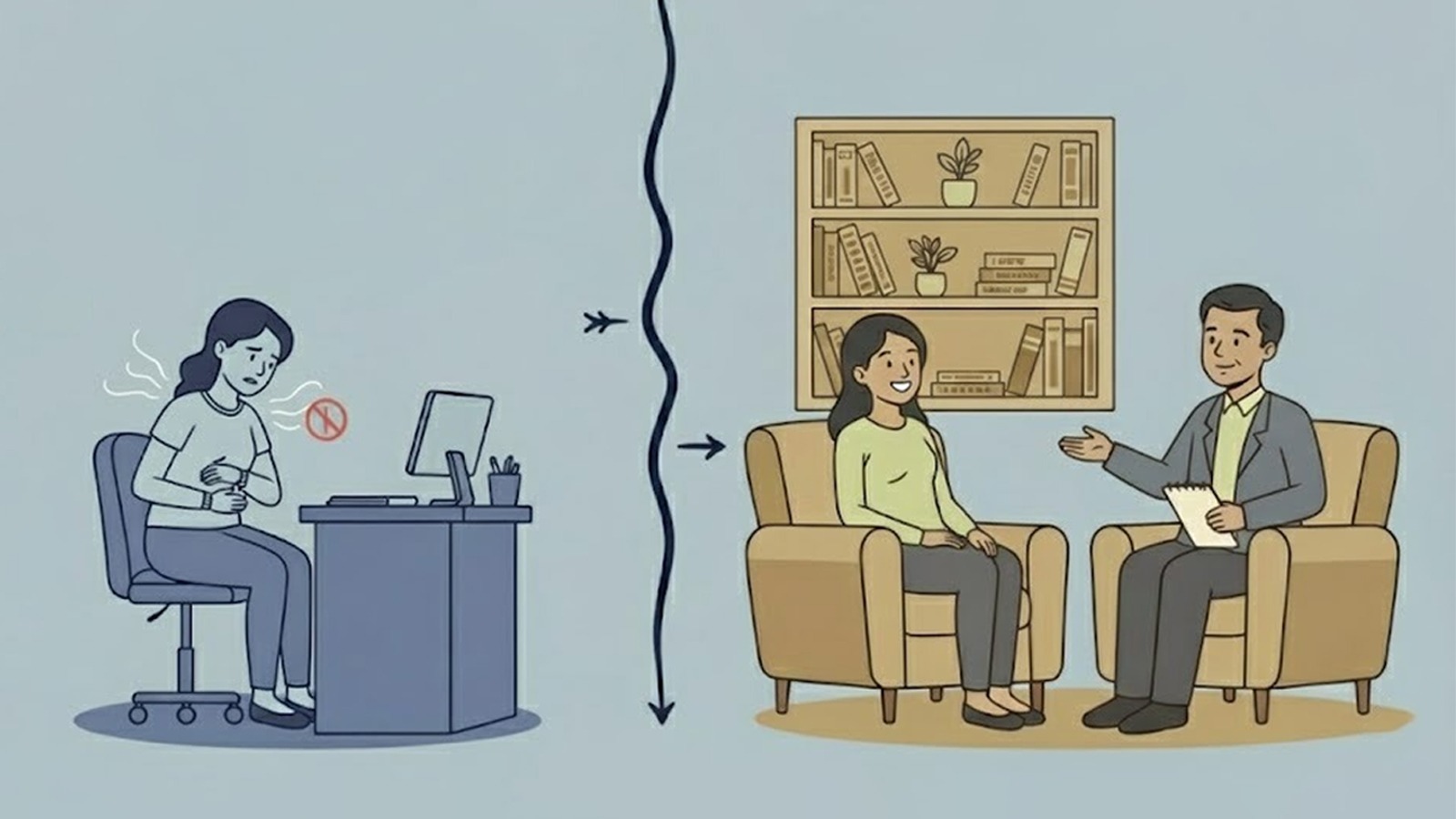
10
Nov
Anxiety is no longer limited to extreme situations or crises. Today, many people experience anxiety quietly while going to work, managing family responsibilities, or lying awake at night with racing thoughts. Over time, this constant mental pressure can affect emotional health, physical well-being, and daily functioning. As a mental health specialist in Lucknow with over 15 years of clinical practice, Dr. Saurabh Jaiswal has seen how untreated anxiety slowly disrupts lives often before people realise they need medical help. This blog helps you recognise when self-help is enough and when professional care becomes necessary.
Anxiety is the brain's natural alarm system. It prepares the body to deal with perceived danger.
The problem begins when this alarm stays switched on even when no real threat exists.
Medically, anxiety disorders occur when:
Worry becomes excessive or uncontrollable
Fear responses are out of proportion to situations
Physical symptoms appear without clear medical cause
This is not a personality flaw or lack of willpower. Anxiety involves neurochemical imbalance, stress-response dysregulation, and learned thought patterns, which require structured treatment.
In real-world psychiatric settings, anxiety often presents in different forms:
Many patients experience overlapping symptoms, which is why professional evaluation by a psychiatric doctor is important instead of self-diagnosis.
One of the biggest misconceptions is that anxiety is "only mental." In practice, many patients first visit physicians for physical complaints.
When routine medical tests appear normal, anxiety is often the underlying cause.
In cities like Lucknow, anxiety cases have risen due to multiple lifestyle factors:
These stressors continuously activate the nervous system, increasing the need for structured anxiety treatment in Lucknow rather than temporary coping methods.
Yes many cases improve without medication, especially when identified early. Medical management usually follows a step-wise approach:
Medication is considered when symptoms are severe or disabling, panic attacks are frequent, anxiety causes depression or insomnia, or therapy alone is insufficient. As a trusted mental health professional, Dr. Saurabh Jaiswal follows evidence-based prescribing with the lowest effective dose, regular follow-up, clear explanation to patients, and avoiding unnecessary long-term use. Medication is supportive, not a lifelong dependency when used correctly.
Self-help content can be useful, but it cannot differentiate anxiety from depression,OCD, or medical illness, identify comorbid conditions, personalise therapy intensity, or monitor response and side effects. A qualified mental health doctor ensures accurate diagnosis and safe treatment.
Anxiety is common, treatable, and manageable when addressed correctly. Ignoring symptoms or normalising constant distress only prolongs suffering. If anxiety is interfering with your sleep, work, relationships, or physical health, consulting an experienced psychiatrist in Lucknow is a medically sound decision not a weakness.
Anxiety cannot be "solved" overnight, but it can be effectively managed and treated. The most reliable approach includes:
Understanding the root cause of anxiety
Learning coping skills through structured therapy (like CBT)
Improving sleep, routine, and stress management
Medication, if symptoms are moderate to severe
With timely guidance from a qualified mental health doctor, most people experience significant improvement and regain normal daily functioning.
Common signs of anxiety include:
Constant worrying or overthinking
Restlessness or feeling on edge
Difficulty sleeping or frequent awakenings
Physical symptoms like palpitations, stomach issues, or muscle tension
Difficulty concentrating or mental fatigue
If these symptoms persist for weeks and interfere with daily life, professional evaluation is recommended.
Anxiety usually develops due to a combination of factors, not a single reason. Common causes include:
Long-term stress (work, finances, relationships)
Past emotional trauma
Genetic or biological vulnerability
Sleep deprivation and unhealthy routines
Excessive screen time and constant mental stimulation
Identifying the underlying cause is essential for effective anxiety treatment.
Overcoming anxiety and fear involves gradual retraining of the mind and nervous system. Effective strategies include:
Cognitive Behavioural Therapy to change fear-based thinking
Controlled exposure to anxiety triggers under guidance
Breathing and relaxation techniques
Building emotional resilience with professional support
With consistent treatment, fear responses reduce and confidence improves over time.